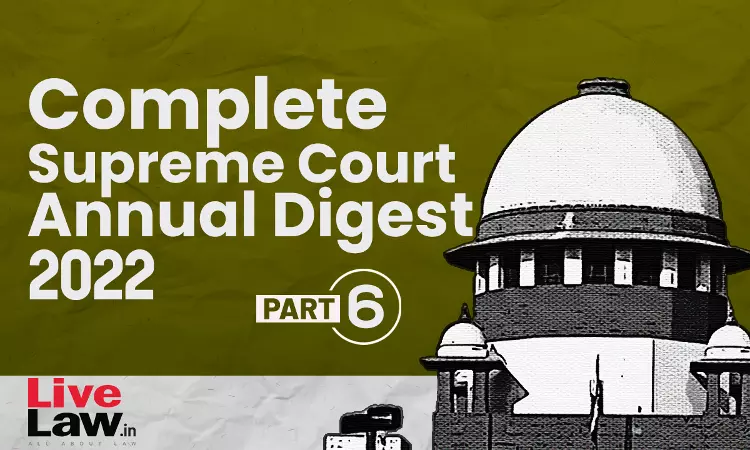- Home
- /
- Top Stories
- /
- Complete Supreme Court Yearly...
Complete Supreme Court Yearly Digest Part-6
LIVELAW NEWS NETWORK
17 Feb 2023 7:50 PM IST
ElectricityElectricity - A basic amenity of which a person cannot be deprived - Electricity cannot be declined to a tenant on the ground of failure/refusal of the landlord to issue no objection certificate. All that the electricity supply authority is required to examine is whether the applicant for electricity connection is in occupation of the premises in question. Dilip v. Satish, 2022...
Next Story



